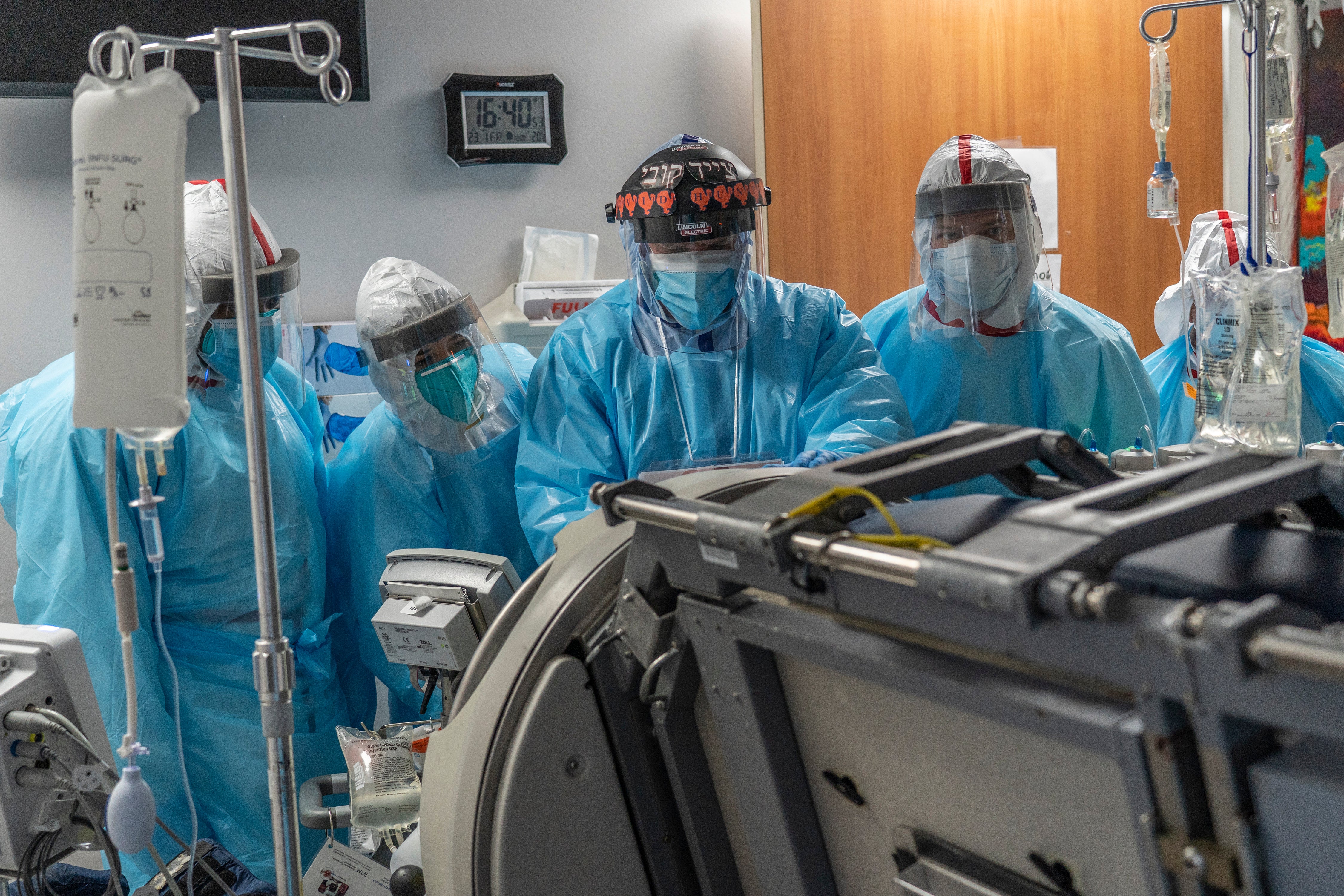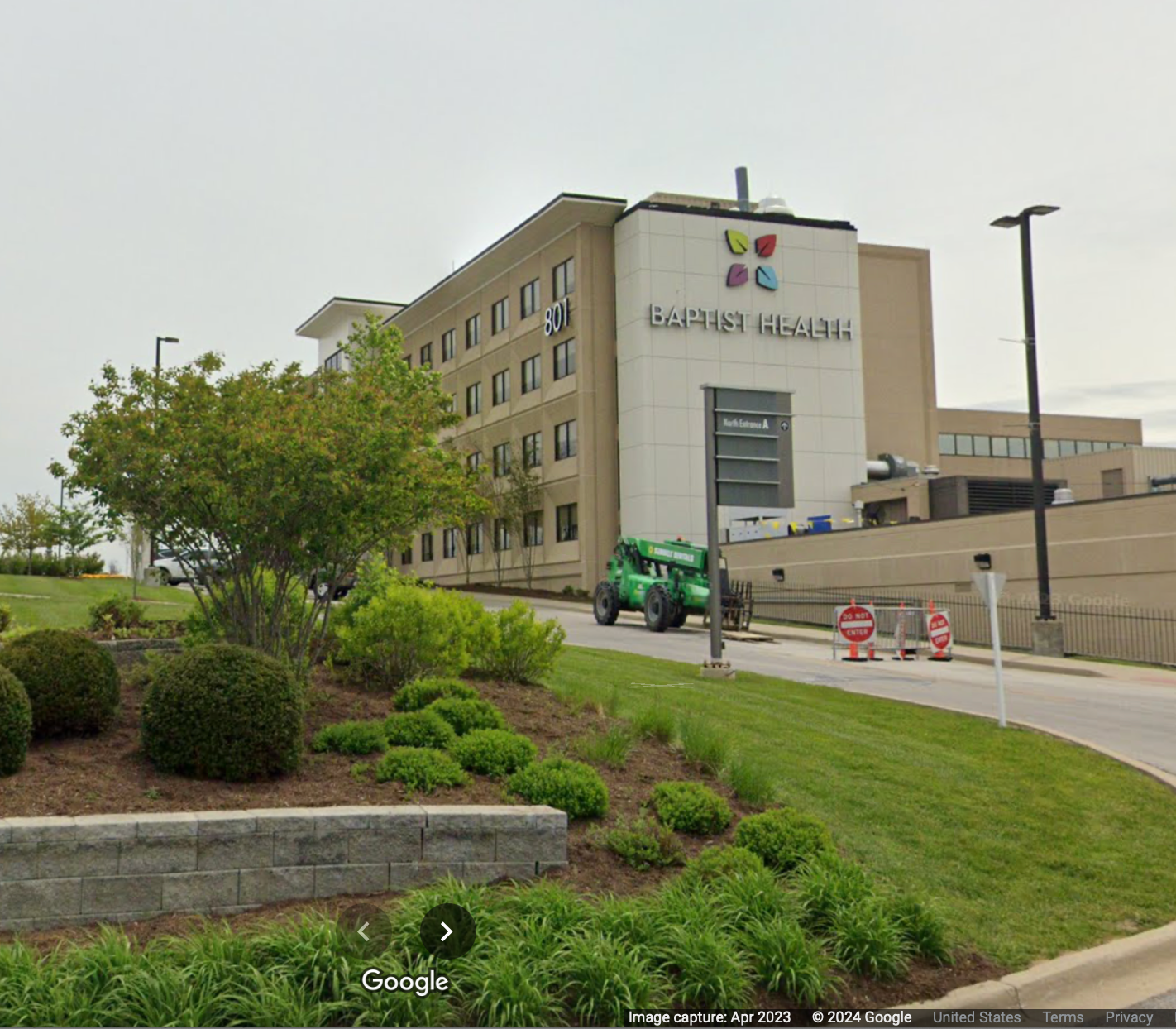Kentucky man’s organs were nearly harvested. Then doctors realized he was still alive
The patient allegedly mouthed the words ‘help me’ ahead of the organ retrieval procedure

The organs of a Kentucky donor who had been declared dead were ready to be harvested — but then doctors made a startling discovery: he was still alive.
“He was moving around — kind of thrashing. Like, moving, thrashing around on the bed,” Natasha Miller, an organ preservationist in the operating room during the alarming October 2021 incident, told NPR. “And then when we went over there, you could see he had tears coming down. He was crying visibly.”
Miller, who works at Kentucky Organ Donor Affiliates (KODA), told the outlet that two doctors refused to perform the organ retrieval after realizing that the donor had wrongly been declared dead.
“The procuring surgeon, he was like, ‘I’m out of it. I don’t want to have anything to do with it,’ ” Miller said. “It was very chaotic. Everyone was just very upset.”
The patient was 36-year-old Anthony Thomas “TJ” Hoover II, who had been admitted to Baptist Health hospital in Richmond, Kentucky earlier that day after a drug overdose, his sister Donna Rhorer told the outlet.
Rhorer recalled a flicker of concern when as her brother was being taken from the intensive care unit to an operating room. She recalled seeing him open his eyes, which then began darting around the room.
“It was like it was his way of letting us know, you know: ‘Hey, I’m still here,’” Rhorer told NPR.

In the operating room, Miller recalled the case coordinator phoning her supervisor at KODA for help once they saw signs of life. The supervisor insisted that the case coordinator needed to “find another doctor to do it,” Miller recalled.
Ultimately, the organ retrieval was canceled. Hoover now lives with Rhorer, his legal guardian.
Hoover is safe, but the shocking moment stuck with KODA workers, some of whom quit after that incident.
“I’ve dedicated my entire life to organ donation and transplant. It’s very scary to me now that these things are allowed to happen and there’s not more in place to protect donors,” organ preservationist Nyckoletta Martin told NPR.
Although she wasn’t in that operating room, she told the outlet that she had reviewed the case file because there was a chance she could have been assigned to work the procedure.
Earlier that day, the donor had undergone cardiac catheterization, which is used to evaluatethe heart’s health before or after a transplant.
“The donor had woken up during his procedure that morning for a cardiac catheterization. And he was thrashing around on the table,” Martin said. But then, doctors sedated the patient and continued to plan to recover his organs, she added.
“That’s everybody’s worst nightmare, right? Being alive during surgery and knowing that someone is going to cut you open and take your body parts out?” Martin told NPR. “That’s horrifying.”
She was so horrified that Martin wrote a letter to Congress detailing the incident. The House Energy and Commerce Committee’s Oversight and Investigations Subcommittee held a hearing on September 11 about oversight of organ transplants. The committee alluded to Hoover’s case — and a witness shared that Hoover, while in the operating room, had reportedly mouthed the words: “Help me.”
“Several of us that were employees needed to go to therapy. It took its toll on a lot of people, especially me,” Martin told NPR.
Baptist Health Richmond Hospital sent a statement to The Independent: “The safety of our patients is always our highest priority. We work closely with our patients and their families to ensure our patients’ wishes for organ donation are followed.”
Meanwhile, KODA maintains that the allegations that have come to light from the case are not accurate. A spokesperson told the outlet: “No one at KODA has ever been pressured to collect organs from any living patient.” The spokesperson added: “KODA does not recover organs from living patients. KODA has never pressured its team members to do so.”

Network for Hope, which KODA is now a part of, told The Independent in a statement: “While we cannot discuss specific case details, we are concerned by the way this case has been misrepresented. We regularly review our internal practices and remain committed to fulfilling our mission of saving lives through donation while respecting and caring for donors and their families, as well as prioritizing patient safety.”
The organization added that organ procurement organizations are not involved in patient care and do not declare death. “At any time, if a patient’s condition improves or a death declaration does not take place, the family is informed that the donation cannot take place, and the OPO team does not proceed with organ recovery.”
This alleged near-miss incident doesn’t stand alone.
At the Congressional hearing in September, one witness, Dr Robert Cannon, the surgical director of the liver transplant program at the University of Alabama at Birmingham, told the committee: “I’ve experienced this myself, unfortunately.” This incident did not involve KODA and did not happen in Kentucky, he said.
A procurement donor had been declared brain dead and in the middle of the operation, an anesthetist said he thought the patient breathed, “which would essentially negate the declaration of brain death,” Dr Cannon said. The staff then called their administrator, who chalked it up to a “brain stem reflex” and recommended they proceed, ”which of course would have been murder if we had done so,” he said.
“Every transplant surgeon’s probably got a story of themselves or a colleague that’s had something like this,” Dr Cannon told the committee.
There are more than 103,000 people on the transplant wait list.
The Biden administration announced plans to overhaul the organ procurement system, including “increasing transparency and accountability,” the Department of Health and Human Services’ Health Resources and Services Administration (HRSA) said in March 2023.
The HRSA is “investigating these allegations,” but was unable to comment further, a spokesperson told The Independent in a statement.
The Kentucky Attorney General’s Office is also looking into the case. The state’s AG Russell Coleman told The Independent in a statement: “Our office has been in contact with advocates and members of Kentucky’s federal delegation regarding this horrific allegation. In collaboration with our Kentucky law enforcement and prosecutorial partners, we will continue reviewing the facts to identify an appropriate response.”
Ever since leaving the hospital, Hoover has experienced issues with remembering, walking and talking, Rhorer told NPR.
The incident still upsets her.
“I feel betrayed by the fact that the people that were telling us he was brain dead and then he wakes up,” Rhorer said. “They are trying to play God. They’re almost, you know, picking and choosing — they’re going to take this person to save these people. And you kind of lose your faith in humanity a little bit.”
Join our commenting forum
Join thought-provoking conversations, follow other Independent readers and see their replies
Comments